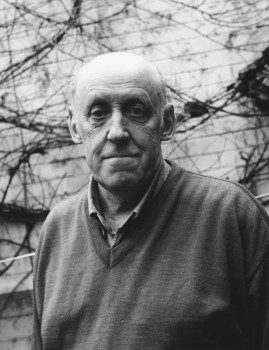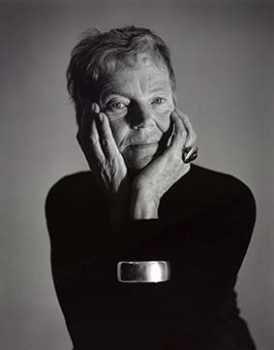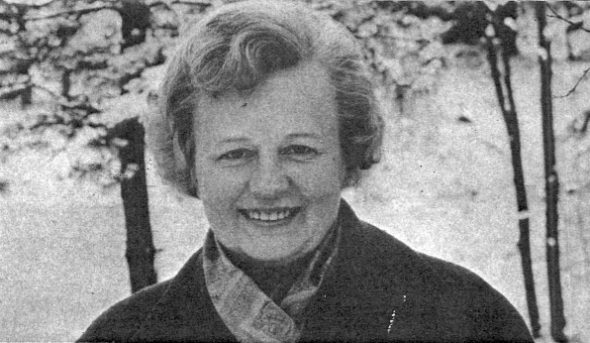Archive for September, 1982
The Storm • September
Issue 3/1982 | Archives online, Fiction, Prose

Bo Carpelan. Photo: Charlotta Boucht
Extracts from Jag minns att jag drömde (‘I remember dreaming’, 1979)
The Storm
I remember dreaming about the great storm which one October evening over forty years ago shook our old schoolhouse by the park. My dream is filled with racing clouds and plaintive cries, of roaring echoes and strange meetings, a witch’s brew still bubbling and hissing in the memory of those great yellow clouds.
Our maths teacher – a small sinewy woman who seemed to have swallowed a question mark and was always wondering where the dot had gone, so she directed us in a low voice and with downcast eyes as if we didn’t exist – and yet her little black eyes saw everything that happened in the class, and weasel-like, were there if anyone disobeyed her – was writing the seven times table on the blackboard, when a peculiar light filled our classroom. We looked across at the window; the whole schoolhouse seemed to have been suddenly transformed into a railway station, shaking and trembling, a whistling sound penetrating the cold thick stone walls, and at raging speed, streaky clouds of smoke were sliding past the window, hurtling our classroom forward as if we were in an aeroplane. Our teacher stopped writing and raised her narrow dark head. Without a word, she went over to the window and stood looking out at the racing clouds. More…
Writer in demand
Issue 3/1982 | Archives online, Fiction, poetry

Märta Tikkanen. Photo: Stefan Bremer
Poems from Århundradets kärlekssaga (The Love Story of the Century)
Märta Tikkanen (born 1935), a Finland-Swedish journalist, teacher and mother of four children, made her literary debut with the novel Nu imorron (‘Now tomorrow’) in 1970. It is a story of the liberation of one woman who breaks free from her traditional role. Her next novels, Ingenmansland (‘No man’s land’, 1972) and Vem bryr sej om Doris Mihailov (‘Who cares about Doris Mihailov’, 1974) brought her fame in Scandinavia, but it was not until her fourth novel, Män kan inte våldtas (Manrape, translated by Alison Weir, Virago, 1978) appeared in 1975 that she made her international breakthrough. To date the book has been translated into eight languages and a film adaptation has been made by Jörn Donner.
Her next work, a cycle of poems called Århundradets kärlekssaga (The Love Story of the Century, 1978) became very popular: it has been translated into seven languages as well as adapted for radio, television and the stage . In 1979 she was awarded the Nordic Women’s Alternative Literature Prize. Die Liebesgeschichte des Jahrhunderts, a monologue play based on Verena Reichel’s translation (Rohwolt Taschenbuch Verlag, 1981) is presently being staged in some twenty theatres in West Germany, Austria and Switzerland. Recently Der Spiegel devoted a page to her career. The American première, directed by Margaret Booker, will take place in Intiman Theatre, Seattle. More…
Arska
Issue 3/1982 | Archives online, Fiction, Prose
A short story from Kaksin (‘Two together’). Introduction by Pekka Tarkka
A landlady is a landlady, and cannot be expected – particularly if she is a widow and by now a rather battered one – to possess an inexhaustible supply of human kindness. Thus when Irja’s landlady went to the little room behind the kitchen at nine o’clock on a warm September morning, and found her tenant still asleep under a mound of bedclothes, she uttered a groan of exasperation.
“What you do here this hour of day?” she asked, in a despairing tone. “You don’t going to work?”
Irja heaved and clawed at the blankets until at last her head emerged from under them.
“No,” she replied, after the landlady had repeated the question.
“You gone and left your job again?”
“Yep.” More…

